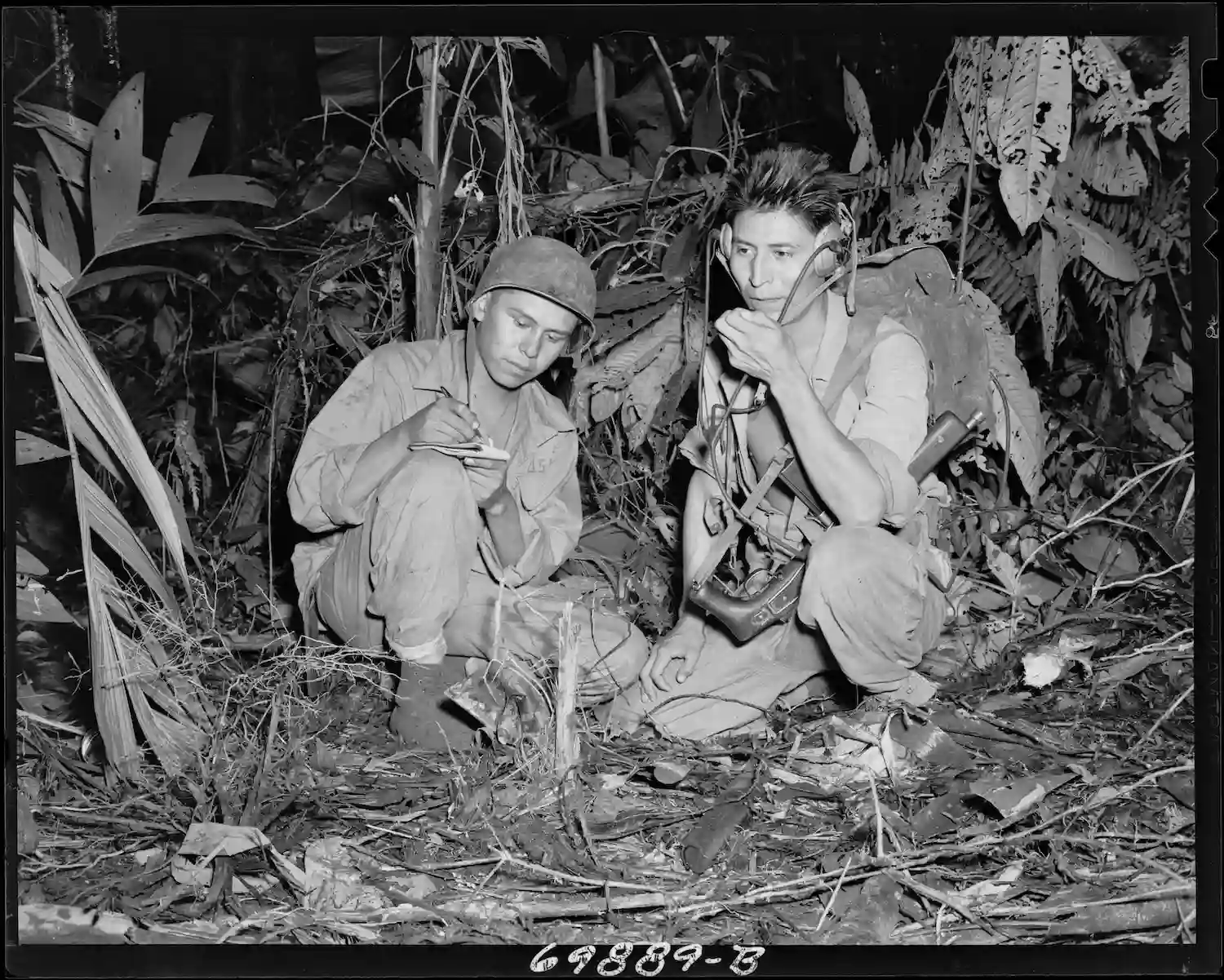
The contribution of the Navajo Code Talkers is one of most overlooked parts of World War II, but that doesn’t diminish their importance. They developed a code so complex that it was never broken throughout the duration of the war. They also took part in every assault carried out in the Pacific Theater between 1942 and 1945, becoming essential to the taking of Iwo Jima.
Their code had its basis in the Navajo language, which proved highly effective since other countries did not have access to, or knowledge of, the language. The brave men who used this code were a massive reason the United States won the Pacific Theater and should be remembered for their service.
The idea for using Navajo as a code came from Philip Johnston, the son of a missionary to the Navajos and one of the few people who could speak Navajo outside of the Native Americans themselves. Johnston was a veteran of WWI and knew other Native American languages had been used in World War I as codes. For this conflict, however, the Navajo language was obviously the best choice.
The Navajo language is an incredibly complex unwritten language. Its tonal qualities and syntax make it difficult to learn and impossible to understand without extensive exposure and training. This code had other advantages beyond concealing messages. The Navajo Code Talkers were much faster when compared to the decoding machines used during that time.
Johnston created tests of simulated combat. In these tests, he proved that the Navajo were able to encode, transmit, and decode a three-line message in only 20 seconds. The machines took 30 minutes to produce the same result. After that, the Navajo Code Talkers were welcomed into the military, with the Marine Corps stating they needed to recruit 200 Navajos as soldiers.
The first 29 recruits of the program created a dictionary that included new words for military terms. Every recruit for the Navajo Code Talkers would need to memorize the dictionary in order to complete their training.
The code itself was simple to translate and encode for those who knew it. The requirements for understanding the code were what made it difficult. Users had to understand both Navajo and English, a skill that none of the enemy soldiers had. Each code phrase also used a string of unrelated words in Navajo. When translated to English, the first letters of each of the words would be taken and strung together in order to create a word. For example, the Navajo word “wol-la-chee”, or ant, would correlate to the letter ‘a’.
Not every word had to be spelled out. Certain words directly correlated to specific objects or military terms. The developers of the code chose 450 terms frequently used in the military to correlate to a specific Navajo word. For example, “dah-he-tih-hi,” or hummingbird, meant “fighter plane,” and “besh-lo,” or iron fish, meant “submarine.”
The Japanese, who were well-versed in breaking code, were baffled by the Navajo language and the code that stemmed from it. Throughout the Navajo Code Talker’s time of service, the code was never broken. This stalwart code and the speed at which the Navajo Code Talkers were able to encode messages allowed for new orders to be delivered at a rapid pace. This made their work critical in taking Iwo Jima.
The Navajo Code Talkers were instrumental to winning WWII, but because of the secret nature of their jobs, they were not properly recognized for their service. During the war, they couldn’t tell their families about the work they were doing. They also continued to remain a secret for a couple decades after the conflict because the US wanted to keep their skills hidden should they be needed for future conflicts.
It wasn’t until the Navajo Code Talkers and their actions were declassified in 1968 that they began to receive credit for their work during the war. Throughout the 70s and 80s they gained some recognition, but it wasn’t until 2001 that the Navajo Code Talkers would receive Congressional Gold Medals for their incredible service to the country and the world.
The men in the Navajo Code Talkers program were integral to US victory in World War II. Their story deserves to be remembered, as does every veteran. For our Veteran’s Day ceremony this year, we are celebrating the accomplishments and heroism of the Navajo Code Talkers.
Mt. Soledad National Veterans Memorial believes in preserving the memories of those who served our country. Our plaques help us achieve that goal. They hold the veteran’s name, their picture, a few words about their service, and a few icons showing what branch of the military they served and what rank they earned. Visit our memorial today to see the plaques of veterans honored by family, friends, and their fellow service members.